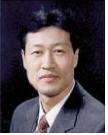#36

Mother Teresa: Through prayer you will believe and through belief you will love —-through your love your will serve.
Isaac Newton’s first law of motion also applies to our Lay Pastor/Shepherd Ministry: A body at rest tends to remain at rest; a body in motion tends to remain in motion. Enthusiasm, commitment and zeal peak at the time a Lay Pastor is called forth, equipped and commissioned. He or she is in MOTION! The energy level is high!
How is that level maintained or, if it dips, how is it brought back up? The answer is fourfold:
- Good “Pastoral Supervision”
(see pages 73-78 in CAN THE PASTOR DO IT ALONE?).
- Occasional or frequent scheduled meeting of the troops (One Lay Pastor: “I’m glad for these meetings. They are a deadline for me to make my contacts”).
- Reports (respond to the reports and follow up on those not turning them in).
- Name-calling affirmation at every possible opportunity by those who lead the ministry (lay and clergy).
Once a Lay Pastor/Shepherd slows down or stops, Newton’s law is a painful one. It is very difficult to restart a stopped Lay Pastor/Shepherd. So the best strategy is to keep him or her in motion. God, who designed the law Newton discovered said through Paul,
‘BE NOT WEARY IN WELL DOING’ (Gal. 6:9)
JESUS ALSO SAID, ‘NO MAN, HAVING PUT HIS HANDS TO THE PLOW AND TURNING BACKWARD IS FIT FOR THE KINGDOM.”●
Dr. Melvin wrote that Isaac Newton’s first law of motion also applies to our Lay Pastors Ministry: A body at rest tends to remain at rest; a body in motion tends to remain in motion. Definitely I agree. That’s why I talked to the PACE network church that I visit and re-equipped them every three months, because I know they needed rebooting from being a long interval. And then I found they woke up and kept on going before being shot down.
COMMENTS
in relation to KEEPING IN MOTION
 Paul Stevens, Canada, says
Paul Stevens, Canada, says
It is open said that real learning begins only after graduation from theological college. That was not entirely true with me. I made my first important ministry discovery in 1959 while examining the Greek text of Ephesians 4:11-12 in the reading room of McMaster Divinity College, Hamilton Ontario.
I discovered that pastors fulfill their calling not by doing the ministry themselves but by releasing others for ministry and mission. God did not give pastor-teachers “to do the work of ministry” as implied in the KJV and the first edition of the RSV and supported by an uninspired comma: “For the perfecting of the saints, for the work of the ministry…” (v. 12 KJV). The so-called “fatal comma” in some English translations led to a clerical understanding that pastor-teachers were given by God, first, for the equipment of the saints, and second, to do the work of the ministry. But the comma is supported neither by the text nor the context. Rather, pastor-teachers were given to the church to equip the saints to do the ministry.
That day I began to understand pastoral leadership and equipping in a different light. The equipping pastor is not merely one who gets the lay people to assist her or him. No, the equipping pastor assists the people to fulfill their own ministry, a much greater thing.
Upon graduation I determined to be an equipper, not a super sole-performer. In more than thirty years I have never recovered from that paradigm shift. I have taken this as my goal in pastoral leadership, in student ministry, and now in theological education.
I wondered why so many programs I had has undertaken had hardly made a dent on liberating the laity. All the models have their place: one-to-one discipling, courses and study programs, lay schools, small groups, and target groups. But I found they all got short-circuited unless one work with whole life of the church by considering the quality or relationships, atmosphere, goals, priorities, and structure. I began to discover why some churches with many programs produced litter leadership and intentional mission, while or other churches with fewer programs but a healthier corporate life evoked that lay ministry almost without trying.■
 Byeong, Melvin University, says:
Byeong, Melvin University, says:
Sometimes our ministry is getting down, then how do you overcame that moment?
Pre-study and reequipping: When we start this ministry, motivating people is crucial. How do they get this motivation? I found it, and also Dr. Melvin advised strongly at his book and personal faxes, because many years ago we, Melvin and me, used fax machine to communicate. He said that if they want to start this ministry they have to pre-study of his first book, Can the Pastors do it alone? Later on I found how important to follow this guidance. Pastors are busy and also laypeople could not study by themselves because most of people are not interested in reading book and studying alone. Of course sometimes there is something interested things happened.
One male layperson read the first book;can the Pastor do it alone?By himself, because his pastor gave him it to read. He confessed later that while he was reading the book, he was on tears of his eyes, because he wants his church to be like the story in the book. Of course this is possible, but what I mean here when they study together they will learn much more about this ministry, because they discuss, chew, and eat, so later when they are just in PACE Equipping Seminar, their mind going high to do this ministry, which means their Motivation is much stronger than not read and come to the training session. This is my real experiences through many churches’ Training.1 I have done this training more than ten years.■
ADDITIONAL COMMENT
by BYEONG
Theory and practice: There are two approaches in ministry: [theory] and [practice]. Theory first? Or the practice? Some people first hold the theory in their hands and then move to apply it to practice, but some people first practice it and establish the theory based on that practical experience.
There are some books, first of all, usually written experiences much. So might a little bit boring. Short-tempered man like me going beyond just reading experiences that are over 10 pages is a bit boring, too. Later, they move from that practice into theory. Some books are several established theory first, on the other hand, to then take hundreds of pages to explain it. A little bit hard to see this first, but simple and mediocre.
Most of the school suggests teaching and learning theory first. They are learning theory in the classroom and trying to apply them into the field. We can not say which one is a better than others. It depends on the given situations.
Of course, we need both. When you look at Rev. Melvin’s second book (“Lay Driven Church”), it says, “A theory without practice has no fruit, and a practice without theory has no direction.” That makes sense.
There are many theories about the lay pastor ministry. In other words, Rev. Melvin first started as a practice and established the theory by developing various materials for 35 years, which led to the possibility of the establishment of Melvin University. The school was different from the church, so a confirmed theory was needed.
Such theories and materials are very practical and useful for the PACE ministry in the actual church. So LPM/PACE is a practice as well as a theory, which means that PACE is practical, and directly and reasonably utilized in our daily lives. So it contains both.
But there are times when we find ministry boring and not growing enough. If we continue to focus on practice at such times, it is difficult to know where we are now, and what we do. So we need to check and then need to change this and that. In this way, we discover [the theory] necessary for practice and find ourselves using it. In other words, we can apply these two while properly utilizing them.
A person who has mastered these two aspects – theory and practice – is called a ‘practitioner.’ In other words, it is a case of success not only in theory but also in practice. So we need both of these. It is to practice for a while, and then return to theory, and then check the theory for a while, and then return to practice. You can rely on such experts at first, but we soon become experts ourselves on those two areas. If that doesn’t happen, we can’t grow and neither success.
We also can get theoretical things from interpersonal relationships, books, experiences, and intellectual levels and from colleagues. And actually, we can get it intentionally and on a little emotional level.
I’ve been practicing for years, but I read books to reaffirm my leadership as much as I can, even now. There are many differences between the ministry as an Institute and university’s management. It’s to see how well I cope with reality – university management. This is because it helps me grow personally and develop administration and leadership.

부주의(careless)
작은 일에 충성하면 큰일 맡긴다는 성경 말씀이 있다; 그런데 작은 것에 부주의하면 대가를 치른다는 말도 있다. 첫 번째 것은 우리가 잘 아는 얘기이다. 설교 때에도 많이 하고, 듣기도 한다. 이것은 당연한 얘기이다. 나도 작은 일에 충성한 결과 큰 일, 즉 멜빈대학교라는 큰 프로젝트를 맡게 되었다고 본다. 그런데 나의 관심은 두 번째 명제인데, “작은 것에 경솔하면 큰 대가를 치른다”라는 말이다. 이것은 상당히 충격적인 명제이기도 한데, 또 지극히 사실을 얘기하지만, 우리 삶에 있어 심각한 얘기라고 본다.
여기서는 경솔이라는 말을 썼지만 부주의(careless)이다. 사전에 보니 이 말은 태만, 과실, 불찰, 실수, 부주의하다, 법에 얽매이지 않는다, 간과하다, 태만, 불 이행, 무모함 등등으로 다양하게 나와 있지만 내가 생각하는 것은 불찰이라고 보이기도 한다. 어쨌든 부주의하면 큰 대가를 치른다는 명제이다. 내 개인적으로 생각이 나는 것인데, 내가 군대 있을 때 신호등이 없는데 막 급하게 뛰어서 건너가다가 차에 부닥친 적이 있다. 그러면서 2~3미터는 튕겨 나갔다. 눈 깜짝할 사이에 일어난 것이다. 다행히 군대 정신이 있어서인지, 그리고 철모까지 쓴 덕택이었는지 두세 번 구른 뒤 털털 털고 일어나서 이상 없이 내 갈 길을 갔다. 아주 부주의함이었지만 다행히 큰 사고 없이 넘어갔다. 지금도 생각하면 끔찍하다.
어떤 미국인 목사님의 이야기인데, 간단히 말하면 경솔하게 여긴 대가를 크게 치렀다는 것이다. 낚시 허가 증으로 60불 내면 미국 전체 강에서 가능하다는 것이다. 그런데 그는 한 작은 호숫가에서, 사람들이 잘 없으니 그냥 낚시해도 되겠지 하고 5-6분 정도 했는데, 어떤 연유로 해서 불법으로 벌금에 60불, 면허증 구입에 60불, 또 교통부에 왔다가 갔다 하는 비용, 등등으로 200불 냈다는 것이다. 그리고 그 과정에 몇 사람을 속이고 되었고, 사모님으로부터는 평생 놀림을 당했다는 얘기이다. 부주의하고, 소홀히 여기는 대가가 이렇게 크다는 것을 말해주는 내용들이라 본다.
나 같은 경우는 치명적인 사고로 세상을 떠날 뻔했든 부주의한 행동(신호등 무시), 또 불법 낚시에 대한 부주의함들로 생기는 댓가. 오늘의 제목처럼 작은 것에 부주의 하면 대가를 치른다는 말이 맞다. 결국 부주의 함은 큰 일에서가 아니라 작은 일, 사소한 것에서 발생한다는 것이다. 우리의 삶에서 사소한 것을 소홀히 하고, 경솔하게 여기고 처리할 때 엄청난 대가를 치를 수 있다는 것을 다시금 명심하는 것이 좋을 것 같다. 작은 일에 충성하면 더 큰 일 맡긴다는 평범한 진리만을 알고서는, 어쩌면 사소한 경솔의 큰 대가라는 것을 간과하기 쉽다는 경고도 항상 고려함이 좋을 듯하다. 우리 인생의 문제는 꼭 큰 것을 그르쳐서 오는 것 만이 아니라는 것을 배울 필요도 있겠다.●
